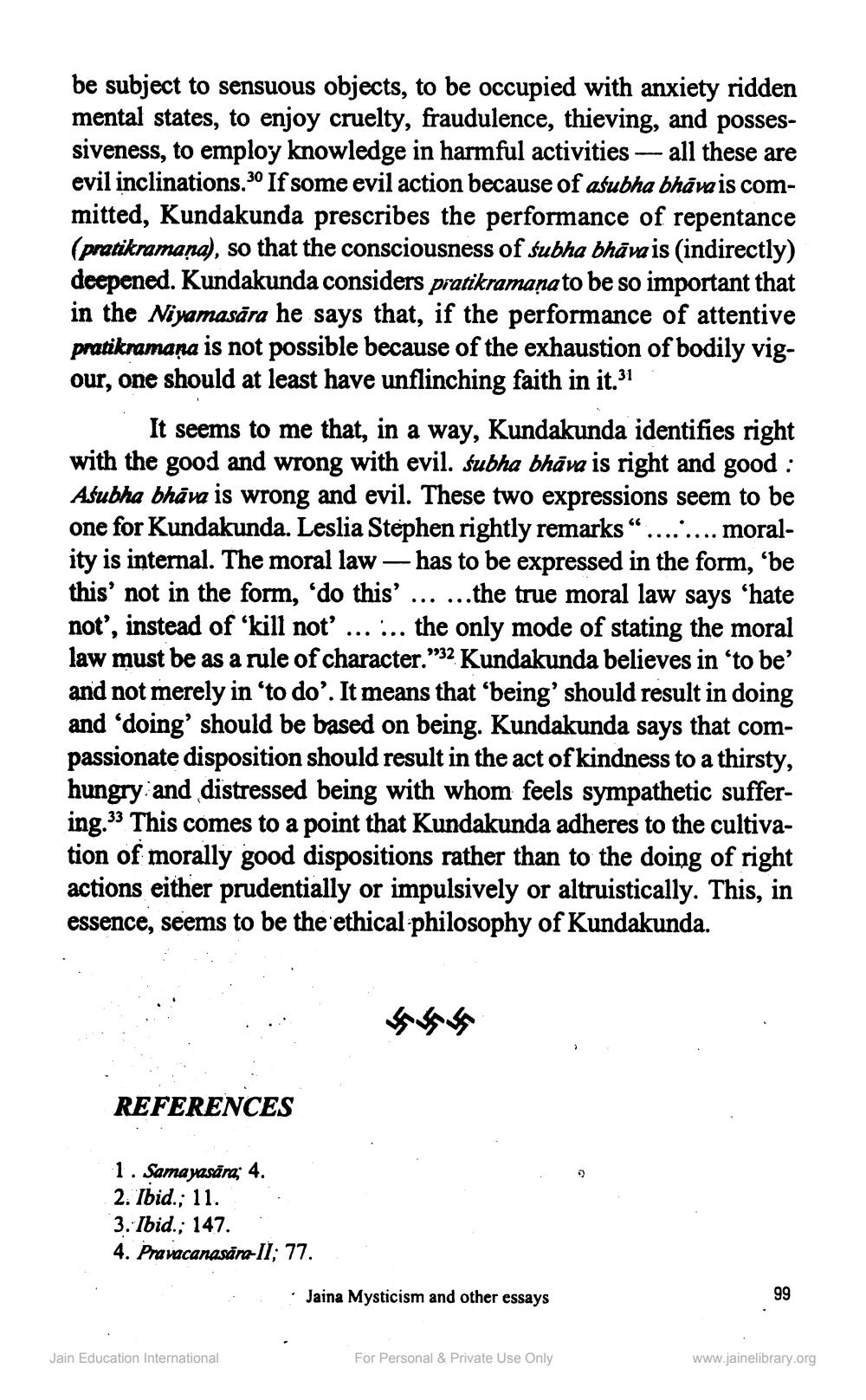________________
be subject to sensuous objects, to be occupied with anxiety ridden mental states, to enjoy cruelty, fraudulence, thieving, and possessiveness, to employ knowledge in harmful activities -- all these are evil inclinations.30 If some evil action because of aśubha bhāva is committed, Kundakunda prescribes the performance of repentance (pratikramana), so that the consciousness of subha bhāva is (indirectly) deepened. Kundakunda considers pratikramanato be so important that in the Niyamasāra he says that, if the performance of attentive pratikramana is not possible because of the exhaustion of bodily vigour, one should at least have unflinching faith in it.31
It seems to me that, in a way, Kundakunda identifies right with the good and wrong with evil. śubha bhāva is right and good : Asubha bhāva is wrong and evil. These two expressions seem to be one for Kundakunda. Leslia Stephen rightly remarks“.... .... morality is internal. The moral law — has to be expressed in the form, 'be this' not in the form, 'do this' ... ... the true moral law says 'hate not, instead of ‘kill not' ... ... the only mode of stating the moral law must be as a rule of character."32 Kundakunda believes in 'to be and not merely in 'to do'. It means that being should result in doing and doing should be based on being. Kundakunda says that compassionate disposition should result in the act of kindness to a thirsty, hungry and distressed being with whom feels sympathetic suffering. 33 This comes to a point that Kundakunda adheres to the cultivation of morally good dispositions rather than to the doing of right actions either prudentially or impulsively or altruistically. This, in essence, seems to be the ethical philosophy of Kundakunda.
REFERENCES
1. Samayasära; 4. 2. Ibid., 11. . 3. Ibid., 147. 4. Pravacanasāra-I1; 77.
· Jaina Mysticism and other essays
99
Jain Education International
For Personal & Private Use Only
www.jainelibrary.org




